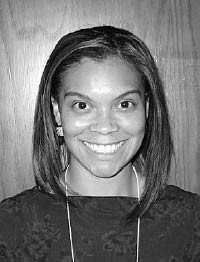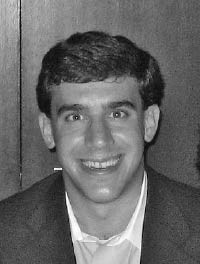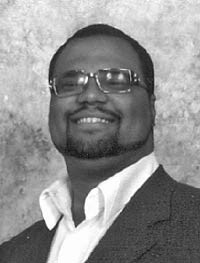If you want to check out the complete totals for yesterday’s elections, the Election Commission has just the website for you. Click on the icon and follow the simple directions. They even have pie charts.
Month: August 2006
Ronnie McDowell in concert
Elvis Week kicks off Tuesday. In the meantime, tribute artist Ronnie McDowell plays the Horseshoe on Saturday.
For more info, go to the Flyer’s searchable online calendar.
Arthur Lee Dead
Memphis rocker Arthur Lee, 61, of the influential rock group Love, passed away yesterday from leukemia. Lee was the first adult in Tennessee to receive a bone-marrow transplant using stem cells extracted from an umbilical cord. Read the Flyer story about the procedure, here.
Two big winners in Thursday’s voting in Shelby County were
9th District congressional candidate Steve Cohen, victorious
in the Democratic primary, and Steve Mulroy, winner of the pivotal
District 5 position on the Shelby County Commission. Cohen will be heavily
favored in the coming November general election against Republican MarkWhite and independent Jake Ford.
Mulroy has won his position outright, and his relatively
easy victory over Republican nominee Jane Pierotti reverses the current
7-6 partisan breakdown in the Democrats’ favor. An activist whose energy and
scope was displayed over the last year in such causes as saving Libertyland and
voting-machine reform, Mulroy had become a fixture of the local scene even
before his involvement in the commission race.
When an impressed observer commented to Mulroy Thursday
night about his win, “You know, Steve, a year ago I had never heard of you,” the
clearly ebullient lawyer said modestly, “A year ago I hadn’t even heard
of me!”
To no one’s great surprise, incumbent Democratic county
mayor A C Wharton easily won reelection, as did Sheriff Mark Luttrell
and District Attorney General Bill Gibbons, both Republicans.
Several countywide positions were won narrowly by
Republican incumbents on the basis of the final precincts counted, dashing the
hopes of several Democrats who led for much of the night. Judicial elections saw
most incumbents and other pre-election favorites triumphant – though incumbent
judges Michelle Alexander-Best and Donn Southern were defeated by
Karen Massey and Karen Webster, respectively.
Prosecutor Lee Coffee won a hotly contested
multi-candidate race in Criminal Court, Division 7, another prosecutor, Jim
Lammey, won an open seat in Division 5, and Deborah Henderson eked
out a narrow win over Regina Morrison Newman for a General Sessions
Division 4 judgeship.
As expected, retiring state senator Curtis Person
was elected Juvenile Court judge over four opponents – three of whom were black
female Democrats with overlapping constituencies.
Winners in legislative races, besides the favored
incumbents, were Steve McManus in the Republican primary for District 96
(vacated by Paul Stanley, winner of the GOP state Senate primary in
District 31); Ron Lollar in the GOP primary for House District 99; and a
rematched Ophelia Ford and Terry Roland, Democrat and Republican,
respectively, for the state Senate District 29 seat that was declared void after
last year’s suspect special election.
Educator Bill Morrison won the Democratic primary in
the 7th congressional District, earning the right to face GOP
incumbent Marsha Blackburn in November.
STATEWIDE, Governor Phil Bredesen and state Senator
Jim Bryson of Franklin handily won the Democratic and Republican
gubernatorial primaries, respectively. Easy wins were also had in the U.S.
Senate primaries for Democrat Harold Ford and Republican Bob Corker.
The Senate race is almost certain to loom large on the
barometer of national politics this fall. But in the short run nothing competed
for dramatic impact of Cohen’s victory in the 9th
District Democratic primary – over a long list of contenders, including
newcomers Nikki Tinker and Ed Stanton, lawyer Joe Ford Jr.,
and outgoing Shelby County Commissioner Julian Bolton.
During the campaign Cohen came under strenuous attack —
especially from Tinker surrogates and from Bolton, the latter of whom made
explicit a simmering concern in some quarters that Cohen was too white and too
Jewish to represent the predominantly black 9th District.
Cohen, who was backed by several prominent blacks, overcame
such sentiments – capturing almost a third of the total vote in the 15-strong
primary field (in the process garnering, one report suggested, as much as 15
percent of the district’s black vote). And, ten years after his first try for
Congress, he was poised to assume a long-coveted place on the national
stage.
THE CONTRAST TO 1996 couldn’t have been more obvious. The
Steve Cohen who mounted a platform at Palm Court in Overton Square Thursday
night was smiling. He was surrounded by celebrants, not commiserants. And,
instead of the bitterness that had quickly settled over him when the racial
dimensions of his defeat became obvious ten years ago, this Cohen was suffused
with the inner calm of knowing that he had picked up significant support in all
quarters of the 9th District constituency.
The one he will represent in Congress for the next two
years unless some major upset should come about in the next three months.
Democratic primary winner Cohen, a public official for
almost three of his five-odd decades, won’t formally ascend to the pinnacle of
his ambitions until and unless he nails down a victory over Republican nominee
Mark White and independent candidate Jake Ford in November.
Technically, the fat lady hasn’t sung yet.
But you could tell she was tuning up from the hum of
jubilation that surrounded Cohen as he began to speak to his throng of
supporters Thursday night.
That disappointment from the past still lingered in the
form of a wistful recollection. Cohen began on a sedate note. “I’ve had
victories, and I’ve had defeats,” he said, even tearing up a little as he
recalled that other August in 1996, when he had been on the wrong end of a
2-to-1 shellacking by Harold Ford Jr., the congressman’s son who would
become a congressman in his own right and then a national figure.
Cohen found the silver lining. That defeat, he said, had
made it possible for Ford, a “great, charismatic congressman” to serve “with
pride and distinction” in the House and to be on the brink of his own glorious
opportunity. Together, he and Ford, who was the overwhelming winner in
Thursday’s Democratic primary for the U.S. Senate, could now do significant
things for the people of Memphis and Tennessee.
And, Cohen said, serving another decade in the state Senate
had allowed him to bring to fruition his dream of a state lottery – the crowning achievement of
his 26 years spent there so far.
A truly lusty cheer rang out from the crowd at this artful
– and evidently sincere — squaring of a personal cycle.
Other Democrats had failed on this night to win, Cohen said
in acknowledgement that most of his party’s nominees for countywide offices were
in difficult straits (all but mayor A C Wharton would eventually lose,
some of them by a relative handful of votes). But they, too, he promised, would
have a chance at some future redemption.
ONE OF THOSE DEFEATED DEMOCRATS, lawyer Gail Mathes,
who had waged a spirited campaign against victorious Republican incumbent
Bill Gibbons for the office of District Attorney General, would shortly
arrive to congratulate and embrace the victorious Cohen. Despite flooding
Democratic households with robo-calls from 2004 Democratic presidential
contender John Kerry and, on the last day of the campaign, former
president Bill Clinton, Mathes’ campaign had come up well short, and
Mathes seemed calmly resigned to the outcome. And philosophical.
“This race may have encouraged him [Gibbons] to be more
active on the job,” Mathes had told the Flyer’s Bianca Phillips at a
post-election gathering for Democratic candidates at the University of
Memphis-area Holiday Inn. That fact, she said, may have made her losing effort
worthwhile. “We would not be in the [crime] situation we’re in if he had worked
as hard for his entire term as he has in the last seven months.”
Understandably, perhaps, Gibbons didn’t see things that
way. On the basis of early-voting returns alone – which showed him leading
Mathes by 20 percentage points, the incumbent D.A had made an early victory
speech to cheering supporters at the Fox and Hound Restaurant on Sanderlin,
telling them, “I regard this as an endorsement by the people for our decision to
confront violent crime.”
He acknowledged privately that crime statistics had gone up
in the last two years but said the election outcome indicated his good-faith
efforts were properly understood and appreciated. Calling himself “a uniter,
not a divider,” Gibbons, who was supported by several key Democrats during his
campaign, said he had enjoyed across-the-board support despite Mathes’ robo-calls
and a late mailer accusing him of negligence in dealing with sexual-harassment
cases, among other matters.
Other disappointed Democrats, notably Juvenile Court clerk
candidate Shep Wilbun, were not quite so sanguine about their defeats as
Mathes had been. Late returns made Wilbun the apparent loser – by the narrow
margin a few hundred votes – to incumbent Republican Steve Stamson, who
had taken the clerkship from Wilbun four years ago.
An aggrieved Wilbun, who has blamed his 2002 loss on what
he regards as trumped-up (and later dismissed) charges of misconduct that were
brought against him during that campaign, now suspected dirty pool again and
reportedly stormed down to the Election Commission office in an effort at
protest.
THREE OTHER DEMOCRATS – Otis Jackson, running for
Shelby County clerk against Republican Debbie Stamson; Sondra Becton,
making her second consecutive race against former boss Chris Thomas in
the Probate Court clerk’s race; and Vernon Johnson, challenging incumbent
Republican Criminal Court clerk Bill Key – had similar hairbreadth losses
after being on the cusp of apparent victories. (The two Stamsons are a
husband-and-wife team.)
Fairly comfortable victories were won by Republican
incumbents Gibbons and Sheriff Mark Luttrell (over Democrat Reginald
French). Other GOP winners were incumbent Trustee Bob Patterson over Democrat
Rebecca Clark, incumbent Circuit Court Clerk Jimmy Moore over
Roderic Ford, and incumbent Register Tom Leatherwood over Democrat
Coleman Thompson.
The most convincing win was that of county mayor Wharton
over Republican challenger John Willingham, an outgoing Shelby County
commissioner who has levied a number of complaints – some plausible and enduring
– against the Shelby County government establishment in recent years.
But Willingham, who was among the first to decry the terms
of the now suspect city/county contract to build the FedEx Forum as an arena for
the NBA’s Grizzlies, could not convert any of his crusades into electoral
success. The popular Wharton obliterated him by a margin of almost 3-to-1.
Informed early Thursday night of the first totals showing
such a gulf, Willingham shrugged and said merely, “This is bad.” It remains to
be seen whether he will go on to challenge voting procedures as he did when he
lost another lopsided race against Memphis mayor Willie Herenton in 2003.
Some clue may be had from the fact that late Thursday night
Willingham supporter Warren Cole made an appearance at the Election
Commission and told the Flyer‘s Greg Akers that he had
“suspicions” about the accuracy of the early-voting results and about the
election-day totals as well.
AFTER THE DISCOVERY ON THURSDAY that an election-eve
scare concerning a purportedly stolen ballot box had been based on a
misunderstanding, concern in most political quarters had settled on the
remarkable fact that election-day totals had lagged well behind those of a
two-week early-voting period, by a ratio that some estimated to be as much as
2-to-1.
The long lines and lengthy delays of early voting had been
well publicized, perhaps to the point that many voters who had waited until
August 3, when a massive turnout had been predicted, had been discouraged and
did not bother to vote. Whatever its cause, Thursday’s lighter-than-expected
turnout may have resulted in totals skewed to elderly and suburban voters, who
presumably had enjoyed a larger window of opportunity during early voting than
had the city’s working-class population.
In any event, the long-predicted swing of voter dominance
to the county’s Democrats – predicted in every election since 1990 – has yet to
occur, despite what would seem to be an ever-increasing demographic advantage
based on the growing preponderance of African Americans in Shelby County’s
population.
The black voting base of Shelby County is expected,
however, to emerge as a major factor in voting this November – particularly on
behalf of Rep. Ford’s Senate bid against Bob Corker, the former
Chattanooga mayor who won a convincing victory over two primary foes, former
congressmen Ed Bryant and Van Hilleary, coming close to achieving
an absolute majority.
Though Corker’s campaign rhetoric reflected obeisance to
the same fiscal and social conservatism that animated Bryant and Hilleary, he is
widely perceived as having a more moderate profile, and this fact, coupled with
Ford’s own propensity these days for moderate-to-conservative rhetoric, could
mean that demographic factors will count for more than usual in a statewide
election.
They will increasingly account for more than usual in
countywide elections, too, as the victorious Gibbons, in a swing by county
Republican headquarters late in the evening, made clear.
The Flyer‘s Shea O’Rourke was on hand when
the D.A. had this to say to the GOP faithful gathered there. “I
want to talk to you as my fellow Republicans, and I think the message is clear
from this – [GOP chairman] Bill Giannini and I have talked about this a
lot — we are a Democratic county now. I think all of us realize that. And in
order to survive as a political party in this county, we have got to be willing
to reach out and reach other right-thinking Democrats and bring them along with
us.”
Moments later, a victorious Sheriff Mark Luttrell said
something similar: “I
think one of the things as Republicans that we have to do is we have to really
reach out. We’ve really got to reach out because if we don’t reach out, I think
we’re going to be marginalized even more. And when I say ‘reach out,’ I’m not
talking about compromising anything. I’m talking about getting out there and
convincing people that the message that we have is the right message.”
At that, a woman in the audience
yelled out “Amen!” And the hearty applause that came next indicated that — to
the Republicans on hand, at least — the sentiments expressed by Gibbons and
Luttrell would be a key part of that message.
(Greg Akers, Shea O’Rourke, and Bianca Phillips also contributed to this report.)
Election Post-Portem
Who won, and why? What’s it all mean? And what comes next? We address these questions in “Political Beat”.
Get Out the Vote
The results are in from last week’s elections, but the polls are still open for the Flyer’s Best of Memphis. To vote, go here. Results will be the September 28th issue.
When I was on a flight back into Memphis a few weeks ago, I noticed the Mississippi River. The thing cut all over the landscape for hundreds of miles.
The Mississippi is called a “meandering stream” because it is so crooked. It takes the path of least resistance. When it runs into something, it goes around it, and over a period of time, it cuts itself into the landscape.
We have to ask ourselves why we have so many other things that are crooked in the city of Memphis. It’s because we take the path of least resistance. It’s always easier not to take a stand, not to say what has to be said, not to do what has to be done, and not to fight the battle that has to be fought.
For too long in the city of Memphis, we’ve taken the path of least resistance. We’ve taken the easy path of race or gender or section of town or political party or political standing. We’ve taken the easy route of not rocking the boat or shaking the tree, of compromising, capitulating, to just get past election day and let everything get back to normal.
We can’t afford that any more. We have reached the point in the life of the city where we have to have some change. It’s going to have to be immediate, drastic change. We need to change what’s between our ears. We’ve got a system that is broken. We need a check-up from the neck up.
We have to change the paradigm.
I haven’t had a fund-raiser since 1995. I don’t send out letters. I don’t ask for money. If certain groups think I’ve done my job well enough that they want to send me some money, cool. But they’re not going to get anything for it other than what I give to every other citizen in Tennessee: I’ll listen to your issues and weigh the pros and cons for the benefit of the people I serve.
Elections in Memphis are decided on personalities. It’s not about merit. It’s not about performance. It’s about names. It’s about families. As long as we keep that paradigm in Memphis, we’re going to have the same old politics.
We have people who want to start their political careers in Congress. They don’t want to start at the Board of Education and help the kids learn. They don’t want to go downtown to City Hall and fight the battles of picking up garbage and fixing roads and work with MLGW. They don’t want to go over to the County Commission and deal with the deficit and the budget. They want to go to Congress and get their start there.
Money says they can do it. So there are thousands upon captive thousands of dollars that are being pumped into Memphis and Shelby County to tell us that people we’ve never heard from before are better than those whom we know — better than those who have driven up and down the road, those who have paid the price and worked the work, made the speeches, taken the stands.
Folks think that all they’ve got to do is have the right last name. That’s ridiculous in a city this size.
It stops with you. None of us are entitled to do anything with a political title if we have not done the work. It’s just that simple. I hope that folks will ask a very simple question before they push the button for an individual: What have they done? Have they served in the community? Where do they come from?
We’ve got folks transferring to Memphis to run for office when we’ve got folks standing in this front yard who are more qualified. It’s in your hands. We need to end the status quo. We need to end the politics of entitlement. It’s up to you. Make a statement.
John DeBerry is the state representative from District 90. These remarks are from a speech he made Sunday at a “front porch” rally for District 29 state Senate candidate Steve Haley.
Teaching For America
Eight years ago, Brad Leon was playing college baseball and football and studying public policy at Occidental College in California. Little did he know that the first place he would have an opportunity to put his lessons into practice was almost 2,000 miles away in Memphis.
Leon, 27, is executive director of Teach For America in Memphis, as well as a former teacher. The national program brings top college graduates to teach in underperforming school systems for two years, with a goal of turning them into career teachers and administrators. The catch, if you can call it that: Most of them lack formal certification beyond what Teach For America provides them.
Fifty-four “corps members” from colleges as far flung as Princeton, Minnesota, and Texas were in the first class that came to Memphis in July. Like Leon, many of them had never been to Memphis and knew little about it, but they were intrigued enough to make it one of their top choices among the 28 cities and regions where Teach For America operates.
On a recent Sunday afternoon, with the temperature pushing 100 degrees, about 40 corps members met at Uptown Square to talk to leasing agents, find roommates, figure out how to get to local landmarks, and pick up whatever scuttlebutt they could about their new assignments. For most of them, Memphis City Schools will be their first full-time job. The salary: $37,000.
“I never knew how the city almost died after the [Martin Luther] King assassination,” said Ira Leeds of Atlanta, a 2006 Princeton graduate who will be teaching biology at Kingsbury High School. “You feel like you are part of a city that is really in rebirth.”
Tim Ware, 30, a 1998 graduate of Cedarville University in Ohio, is one of the oldest new teachers. He worked at a hospital and in an inner-city outreach program in Indianapolis after graduation. Ware, who is single, will be teaching history and possibly coaching basketball at Frayser High School.
“I think Indianapolis and Memphis are pretty close to the same,” he said. “You can live comfortably on a teaching salary.”
The benefits of Teach For America for Memphis are twofold. The school system gets an infusion of idealistic young teachers and the city gets 54 of the young college-educated professionals it is competing for with Nashville, Atlanta, Dallas, Charlotte, and other cities. Unlike school “reforms” that embrace the view that public schools are hopelessly broken and should be replaced with charter schools or vouchers to attend private schools, Teach For America believes in undiluted public education. The Hyde Foundation, the Assisi Foundation, and FedEx contributed $782,000 in funding for three years.
“We believe Teach For America is one of the most important initiatives in one of the most important areas of our community: secondary education,” said FedEx chairman and CEO Frederick W. Smith. “It provides truly outstanding talent that will hopefully make a big difference in local school performance.”
Jane Walters, the former Tennessee commissioner of education and Craigmont High School principal for many years, is another fan.
“They’re going to get the world redone if it takes ’til March,” she jokingly said about the idealism of new teachers. She particularly likes the fact that Teach For America wants to improve the public school system from within rather than working around it. The certification issue doesn’t bother Walters, who is now principal at the Grizzlies Academy, a small, downtown high school for students who are at least two grades behind when they finish middle school.
“Common sense needs to take over,” she said. “We need an amazing number of teachers who are passionate about it.”
Studies by the Southern Regional Education Board show that after five years nearly half of new teachers left teaching in the state where they started. Although it has been called a Peace Corps for schools, Teach For America wants corps members to stick around beyond a two-year hitch in the public school backwaters.
“My vision 10 years down the line is hundreds of corps members teaching in the schools and dozens of alumni as principals or running for school board or leaders in the business community,” said Leon. “Of our more than 10,000 alumni, 63 percent are now working full time in education, and 94 percent of them are still working in low-income communities.”
In an interview with the Flyer, Leon talked about his own experience with Teach For America in New Orleans, his impressions of Memphis, and his goals for teachers.
Flyer: How did you come to the program?
Brad Leon: I joined after taking two years off to be a bartender in Southern California. People who know me in Teach For America would be dumbfounded by that because I’m a pretty straight-edged person, but that’s what I did. It was a great job. And one of the sad things, which may be a commentary on education, is I made more per year as a bartender than I did as a teacher in New Orleans. I was making around $36,000 as a bartender, and I believe I made $27,000 my first year as a teacher.
Why New Orleans?
You get to choose where you want to go on your application, and New Orleans was one of my highly preferred sites. I taught at a place called the New Orleans Free School, started in the Sixties by self-proclaimed hippies. The theory was that students shouldn’t have to take certain courses and should sign up for what they wanted to sign up for.
I taught language arts and social studies to seventh- and eighth-graders. The students called me Mr. Brad. We actually didn’t grade our students the first year. We gave written evaluations. My second year, I felt like a piece of American counterculture had died, because the faculty voted to give our students grades. Our principals were devastated that we would do that.
So what was it like?
In eighth grade, students were required to take and pass a standardized test in order to go to the next grade. Only 41 percent of eighth-graders passed before I got there. One of the things I love about Teach For America is this idea of relentless pursuit of results. You are not a missionary. You are going in there to get results for your kids. I had mandatory tutoring for one hour before school and one hour after school.
The big picture came home to me one day when a student was waiting at my car after tutoring. He was a big kid named Thomas, about my size. He was just staring down at his shoes. He said in the saddest voice I’ve ever heard, “Mr. Brad, am I going to pass the LEAP test?”
He wanted to go to Grambling and play in the battle of the bands in the Superdome like his family members had done. He started to explain this to me, and when he got done, his eyes went back down to his shoes because he was afraid it wasn’t going to happen. When we got the test results back, the principal called me down to the office over the loudspeaker. My entire class went silent. They were just terrified. I went back upstairs and started pulling kids out one at a time. Thomas was the last name on the list. He was sitting in the back of the classroom crying hysterically, sitting on the floor with his shoulders heaving. The other kids had formed a horseshoe around him, offering encouragement. When I led him outside, he wouldn’t look at me. I said, “Thomas, you passed.” If I thought he was crying then, he started crying even harder.
What got you into administration in Memphis?
I was thinking about a third year, and the recruitment-director job came open. I thought, Yes, I’m making an impact on those 53 kids, but what if I can get hundreds of our nation’s best college graduates to do this? I recruited at the University of Notre Dame, Iowa, and the University of Chicago. Over my two-year span we went from 100 applicants at Notre Dame to 240 this year. Then I heard we might be opening a site in Memphis. I knew about New Leaders For New Schools here and the New Teacher Project and the KIPP academies. I saw it as a place that was radically reforming education for the better.
What took so long for the program to come to Memphis?
We are a nonprofit. We need to be able to raise money. I’m not sure the funds were there until now. In Memphis you have Billy Kearney, an alum and executive director of New Leaders For New Schools. On the state level, Drew Kim, policy chief for the governor, is another alum. The Hyde Foundation brought me in for a meeting after we had come here. They had pledged $250,000, and it had to be approved. So I went before their board and talked about what we were doing. They have been the real drivers behind this.
Can you attract top grads with the salary structure in Memphis?
This year, we had close to 19,000 applications, and we accepted about 2,400 — or 12 percent. Of those in Memphis, 97 percent highly preferred to come to Memphis. We are very critical about who we get into the program, because we know if kids are on average three grades behind, you are going to have to get the very best to bridge that gap.
How did you like Memphis when you moved here?
I went on apartmentratings.com and found a great place downtown on Jefferson Avenue. When I moved here, I just loved it. My one-bedroom apartment cost $631 a month. I was paying $560 a month in Chicago for a one-room shack, so I felt like I was walking into Shangri-la.
My schedule starts around 5 a.m. I am at the downtown YMCA at 5:30 when they open, less than a mile away. I read the news, get into work, work until 5:30 p.m. There are a couple things outside of work I got to experience. We took all our corps members to the National Civil Rights Museum, and I absolutely loved it. I’ve been to a lot of Grizzlies games and a couple of games at AutoZone Park.
What happens after corps members put in their two years?
One thing that brings people in is the national connections we have. Teach For America has partnerships with all the top law and medical schools and MBA schools. Their career track depends on them.
 Justin Fox Burks
Justin Fox Burks
Dossier White, 21, Vanderbilt University, human and organizational development, teaching government at Kingsbury High School. “I have family here, and I was born here. I want to make a change in my own community.”

Dossier White
Katie Campbell, 22, Bryn Mawr College, political science, teaching special education at Georgian Hills Elementary School. “Memphis was my first choice because I want to be part of a city that is engaged, hopeful, and proactive not only in education but in building a stronger community.”

Katie Campbell
Rachael Szydlowski, 24, Bluffton College, psycholgy/sociology, MAIA from Ohio University in Southeast Asian Studies, teaching language arts at Soulsville Charter School. “I liked the idea of a city that didn’t feel overwhelming or overbearing.”

Rachael Szdlowski
Timothy Flowers, 23, Wabash College, French and political science, teaching at Soulsville Charter School. “I was looking for a community the exact opposite of the small, 100 percent Caucasian farming community [Cicero, Indiana] I am from. I wanted something more cosmopolitan.”

Timothy Flowers
Ira Leeds, 22, Princeton University, politics, teaching biology at Kingsbury High School. “Memphis is the perfect combination of big city and small town.”

Ira Leeds
Tim Ware, 30, Cedarville University, history, teaching history at Frayser High School. “Memphis was attractive to me in light of the culture and the rich history of civil rights activism here.”

Tim Ware
Shelby Rohrer, 22, University of Minnesota, psychology, teaching math at Hamilton Middle School. “I had never been to Memphis, but my preconceived notion was that it was a big city that had more of a small-town feel.”
Fathers & Sons
We baby-boomer fathers spend years tossing baseballs, footballs, and basketballs to our sons, hoping they’ll live out our dreams of becoming big-time ballplayers. But when they grow up, they become huge fans of the great sport of … poker.
Or in the case of young Allie Prescott, a professional poker player. He’s one of 10,000 amateur and professional gamblers who put up $10,000 to play in the World Series of Poker in Las Vegas this week. Maybe you saw him last week on ESPN, staring down something a lot scarier than a 3-2 count or a 95-mile-an-hour fastball: a $700,000 bet on one hand of cards.
I happened to be on the phone at the time with my son Jack in Knoxville when he said, “Wait a minute. Allie Prescott’s playing poker on ESPN! I’ll call you back.”
Seven years ago, Jack and Allie were pitchers on the baseball team at White Station High School. Allie had the size, the speed, and the genes. His dad, Allie Prescott III, was an overpowering pitcher with big-league potential 40 years ago. He picked up a law degree instead, and these days he runs a mediation firm. His wife Barbara is a psychologist and former member of the Memphis City Schools Board of Education.
Allie, the poker pro, graduated from Tulane University, where he played baseball for a year and a half before tearing his rotator cuff. He began visiting the New Orleans Harrah’s casino at about the time Texas Hold ‘Em was becoming a national craze among high school and college guys. Prescott played small-limit Hold ‘Em until two years ago, when a friend turned him on to Internet poker. He honed his skills and played his first poker tournament in Las Vegas, a $2,000 entry-fee affair. His fourth-place finish earned him $45,000.
A car wreck set him back, but when he returned to the table in San Jose in a tournament where the buy-in was $10,000, he had a shot at $1 million before finishing 12th and collecting $60,000. In a little over two years as a poker pro, his winnings total about $270,000, less expenses. Not bad for a guy a few years out of college.
The $700,000 bet came about this way: Prescott and a buddy, Gavin Smith, were playing in a $10,000 poker tournament in New Orleans. From the original field of 170 players, 35 were left. Prescott was in fifth place and Smith was fourth. They decided to make a little side bet.
If Prescott won, Smith would pay him $1 million, or $100,000 a year for 10 years. If the more experienced Smith won, Prescott would pay him $700,000, or $70,000 a year for 10 years. The bet was off if neither of them won or if they both made the final twosome. As it turned out, both did make the final table but only Smith got to “heads up.” Playing more aggressively than usual, Prescott was knocked out, earning $65,000.
“Heads up” lasted six hours, as neither man could knock out the other. At one point, Smith had a huge opportunity with a pair of kings in the hole, but his opponent drew a fourth six on the last card. On the final hand, Smith lost to an ace high. “It was hard for me not to pull for him because he is my best friend, but maybe I will pull for him next time,” said Prescott, who sweated it out in front of ESPN cameras.
How does the thrill of poker compare to the thrills of baseball? “Since I am out of sports,” said Prescott. “I probably get more of a rush out of poker than just watching a game. But nothing is better than the thrill of actually playing.”
Speaking for a generation of fathers, we’re glad to hear that.
At Play
The brain works in mysterious ways. Few people know that better than Sharon Dobbins, who experiences the uncommon mechanics of the mind daily.
Sharon Dobbins is a private music teacher in Memphis who specializes in special-needs students. She has helped develop the aural arts of students who have autism, ADHD, dyslexia, emotional disorders, and learning disabilities. For reasons that science has not yet plumbed, people with these mental disadvantages sometimes excel in other ways, such as in the arts. This Sunday, August 6th, there will be a recital of her gifted students at the Clark Opera Memphis Center.
The students in the recital vary in age from kindergarteners to college graduates, and they will perform in genres as wide-ranging as classical, gospel, lieder, pop, Bach, and boogie woogie.
One of Dobbins’ students who will be performing is 6-year-old Caia Smith, diagnosed with optic nerve hypoplasia — a visual impairment caused by underdevelopment of the optic nerve — at four months. Caia’s parents noted that their daughter responded strongly to music, and at the behest of Caia’s kindergarten teacher, Smith was taken on as a student by Dobbins.
The recital is free and open to the public and is a wonderful opportunity to witness the spectacular abilities of the human mind.
Student Music Recital, 4 p.m. Sunday, August 6th, at the Clark Opera Memphis Center